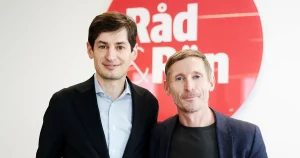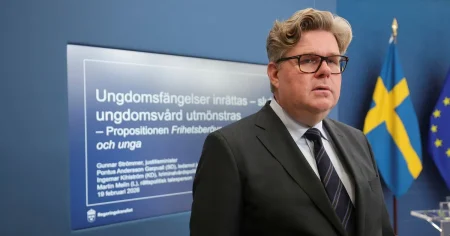The statement ”Vi människor föredrar en god historia före en trist sanning. Därför ligger fältet öppet för charlataner som hittar enkla förklaringar till varför ekonomin och politiken ser ut som den gör. Det är hög tid för akademiker att förklara världen på ett sätt vi andra kan förstå” translates to ”We humans prefer a good story to a dull truth. Therefore, the field is open for charlatans who find simple explanations for why the economy and politics look the way they do. It is high time for academics to explain the world in a way we others can understand.” This assertion highlights a critical issue in the dissemination of knowledge and its impact on public discourse and decision-making: the human preference for narrative simplicity over complex reality, and the resulting vulnerability to manipulation and misinformation. This preference opens the door for individuals who exploit our desire for easily digestible explanations, offering simplistic narratives that often distort or ignore the nuanced realities of complex systems like economics and politics. The statement then calls upon academics to bridge this gap, urging them to translate their specialized knowledge into accessible and engaging formats that can compete with the allure of simplistic, yet often misleading, narratives.
The human inclination towards narrative is deeply rooted in our cognitive architecture. We are wired to seek patterns, connect dots, and create coherent narratives that make sense of the world around us. Stories provide a framework for understanding complex information, organizing experiences, and transmitting knowledge across generations. This inherent preference for narrative, however, can be exploited. When faced with complex issues like economic downturns or political polarization, we are often drawn to simple, compelling stories that offer clear villains, easy solutions, and a sense of understanding, even if that understanding is superficial or inaccurate. Charlatans, recognizing this vulnerability, offer precisely these kinds of narratives, capitalizing on our desire for coherence and closure. They present simplified versions of reality, often laced with emotional appeals, scapegoating, and conspiracy theories, which resonate with a public seeking clear answers in a complex world. These narratives, while emotionally satisfying, can be dangerously misleading, leading to flawed policy decisions and societal divisions.
The rise of social media and the 24-hour news cycle have further exacerbated this problem. These platforms prioritize engagement and often reward sensationalism over accuracy. The rapid dissemination of information, coupled with the lack of rigorous fact-checking, creates a fertile ground for the spread of misinformation and the proliferation of simplistic narratives. Algorithms, designed to maximize user engagement, often amplify emotionally charged content, further entrenching these simplified narratives and making it even more difficult for nuanced and complex explanations to gain traction. This creates an echo chamber effect, where individuals are primarily exposed to information that confirms their existing biases, reinforcing the appeal of simplistic stories and making them resistant to alternative perspectives.
The challenge, then, is to counter these simplistic narratives with accessible and engaging explanations that accurately reflect the complexities of the world. This is where academics have a crucial role to play. They possess the expertise and the research-based knowledge to provide informed perspectives on complex issues. However, academic discourse is often characterized by specialized jargon, dense prose, and a focus on theoretical frameworks that are inaccessible to the general public. To effectively counter the allure of simplistic narratives, academics must translate their knowledge into formats that are engaging, understandable, and readily accessible to a wider audience. This requires not only simplifying complex concepts without sacrificing accuracy but also crafting compelling narratives that resonate with the human desire for coherence and meaning.
This translation of academic knowledge into publicly accessible formats can take many forms. It could involve writing articles for popular publications, creating engaging videos and podcasts, actively participating in public forums and debates, and utilizing social media platforms to disseminate research findings and engage in public discourse. It also requires academics to actively combat misinformation and challenge the simplistic narratives that often dominate public discourse. This necessitates developing effective communication strategies that can resonate with a diverse audience, addressing emotional appeals and cognitive biases, and promoting critical thinking and media literacy.
Ultimately, fostering a more informed and engaged citizenry requires a collaborative effort. Academics must embrace their role as public intellectuals, actively engaging with the public and translating their expertise into accessible formats. Media outlets must prioritize accuracy and responsible reporting, providing platforms for nuanced discussions and challenging simplistic narratives. Individuals must cultivate critical thinking skills and actively seek out diverse perspectives, resisting the allure of easy answers and engaging with the complexities of the world. By working together, we can create a more informed public discourse, one that is less susceptible to manipulation and better equipped to address the complex challenges facing our society. This requires a shift from a culture that prioritizes simplistic narratives to one that values intellectual rigor, critical thinking, and a nuanced understanding of the world.














